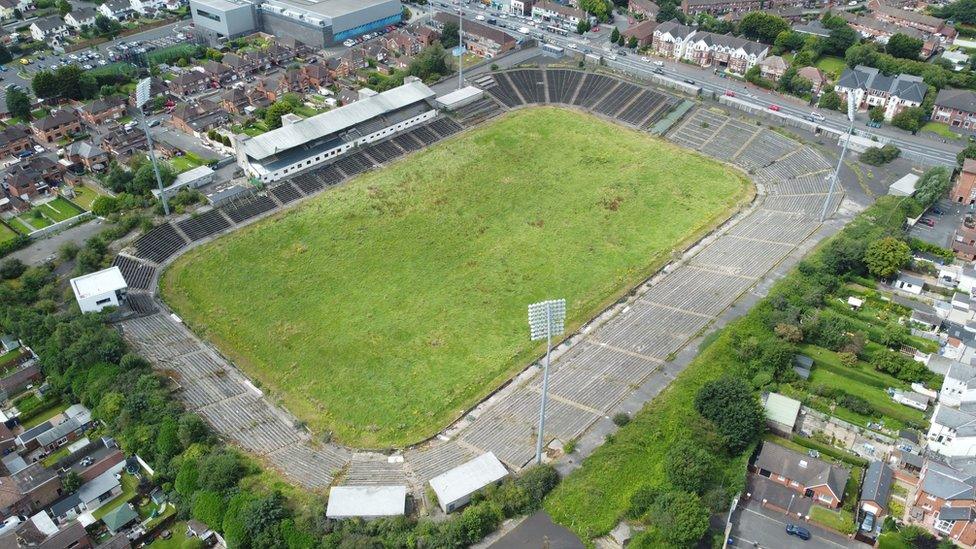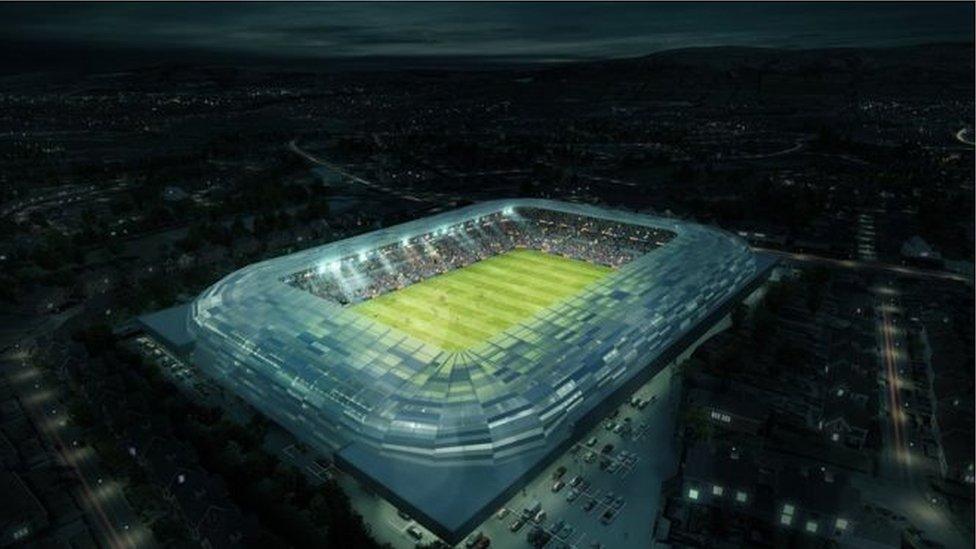Euro 2028: Time ticking for Belfast to host
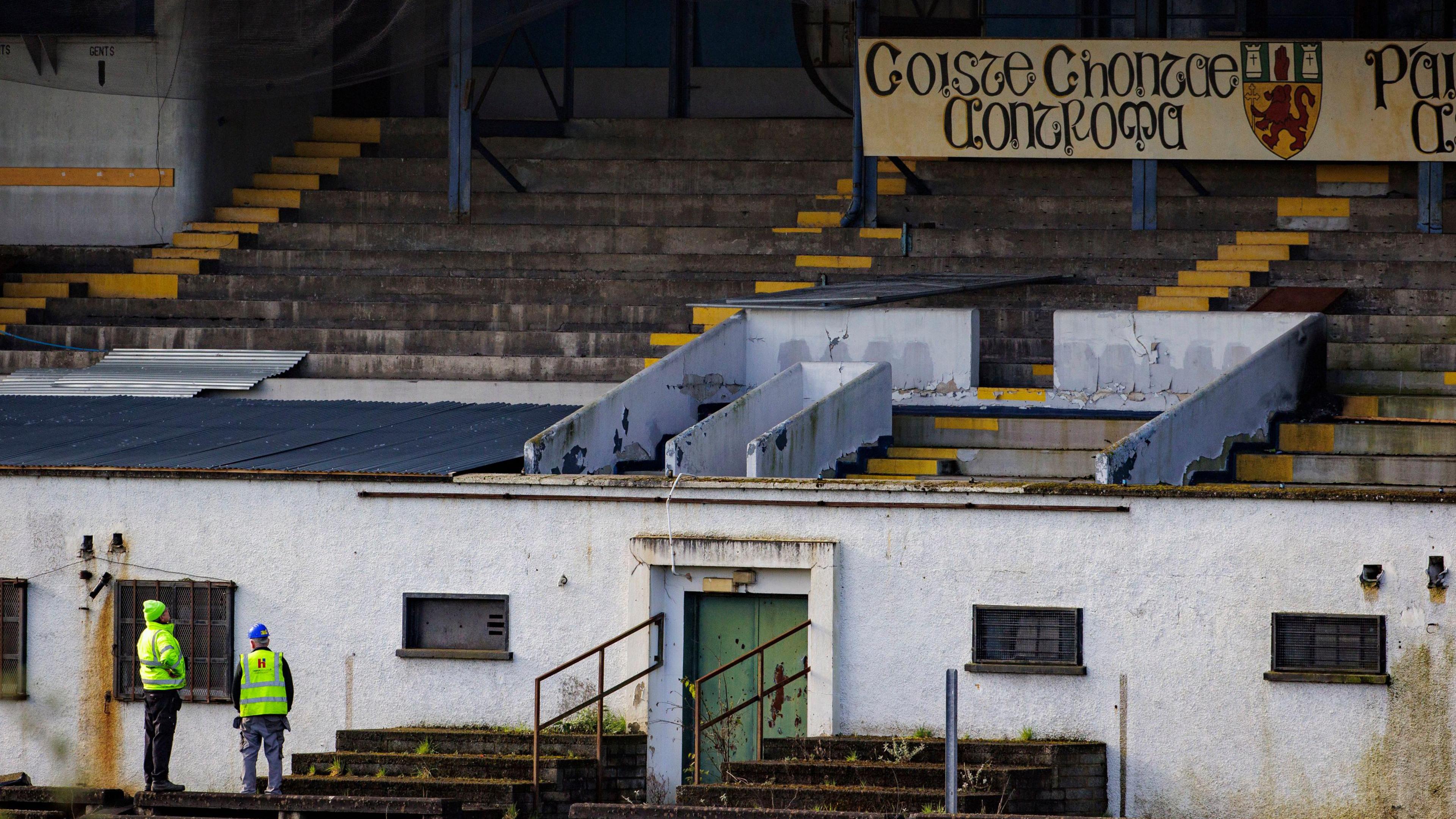
The stadium, on the Andersonstown Road in west Belfast, has been derelict since 2013
- Published
Now that Euro 2024 is over, the organiser Uefa will turn its attention to Euro 2028 and the potential for matches to be played in Belfast.
Casement Park has been chosen as one of the host venues for the tournament, however, uncertainty remains over how the project will be funded and if it can be built in time.
BBC News NI has examined what's the latest on the stadium saga.
Analysis: Mark Simpson, BBC News NI community correspondent
A small window of opportunity has opened up to find the money to rebuild Casement Park in time for Euro 2028.
The change of government in London has provided a final chance to save the project.
The Labour administration has listened to the requests for a large financial contribution and is now trying to work out what it can afford.
Other stakeholders are likely to be asked to dig deeper with their own contributions too.
UEFA is waiting, looking at its watch and wanting an answer.
The little window will slam shut very soon.
What is the plan for the stadium?
Plans have been in place to build a new stadium at Casement Park since 2011.
A total of £36.2m was pledged by the Stormont executive, to what is known as a sub-regional stadia fund, to improve football facilities in Northern Ireland.
Casement Park was to be primarily used for GAA games but it was also one of the 10 venues in the UK and Ireland chosen to host matches in the Euro 2028 soccer tournament.
The redevelopment must be completed by summer 2027 - to meet a deadline set by the European football governing body Uefa.
Uefa is monitoring the situation closely as the wait continues for building work to begin on the planned 34,500-capacity stadium.
Despite funding not being finalised, in February, clearance work finally began at the site.
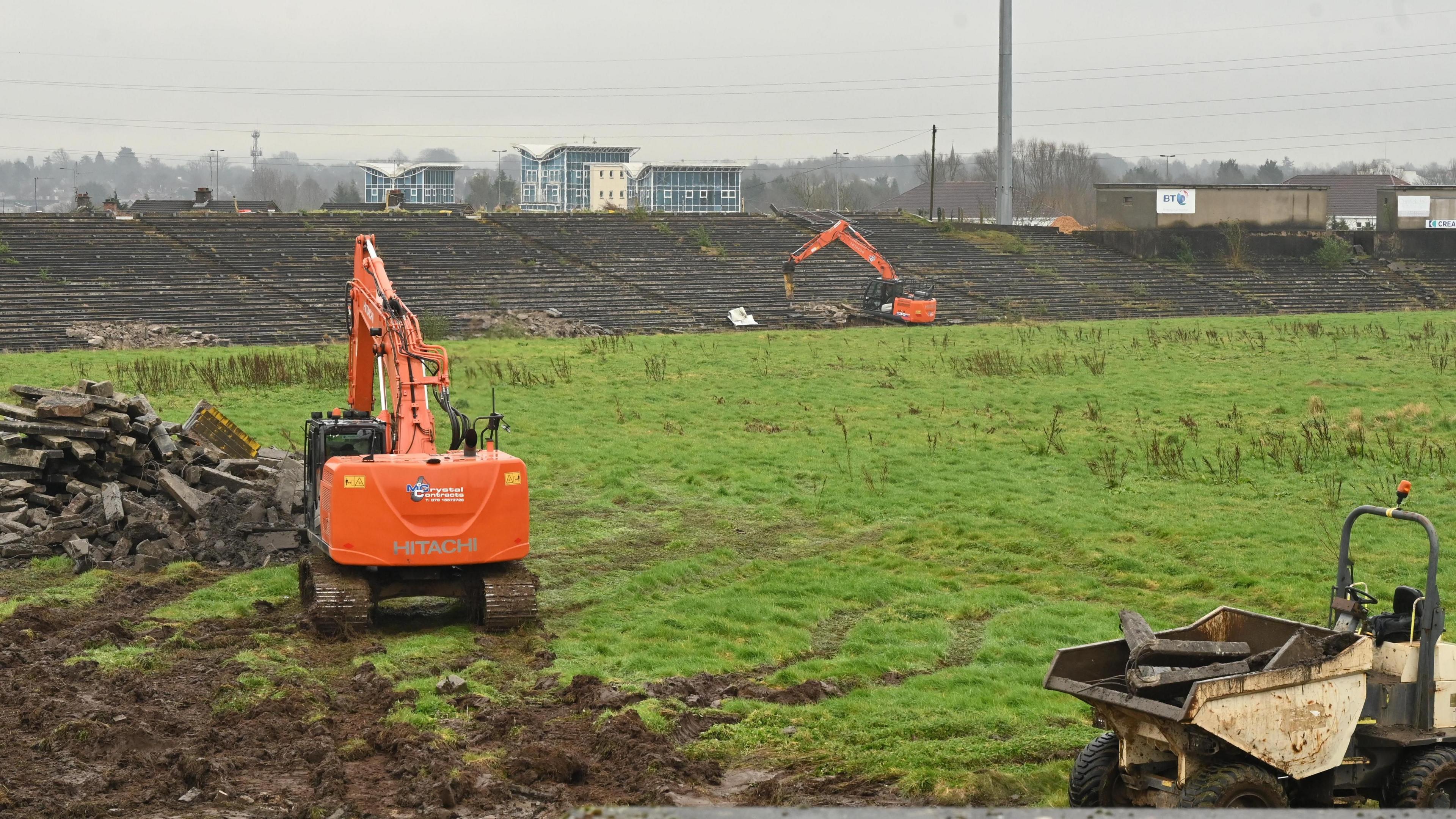
Diggers were spotted on the site in March
Who is paying for the redevelopment?
The Northern Ireland Executive has pledged to pay £62.5m, the Irish government has promised €50m (£43m) and the GAA - the sporting body which oversees Gaelic games - has said it would contribute £15m.
However, the initial cost of the stadium £77.5m - has more than doubled in the past decade, to an estimated £300m, leaving a considerable gap in funds.
The GAA, which owns the ground, is adamant it will pay no more than the £15m it has pledged.
Why has it taken so long?
The first big obstacle came in 2014, when the High Court overturned planning permission for the project.
Local residents had lodged a legal challenge over objections to the stadium's size - they said it would block out light from local homes and cause serious traffic disruption.
Then in 2015, plans were scuppered by safety concerns over how long it would take people to leave the ground in the case of an emergency.
With the original Casement plan now scrapped, the GAA went to work on plans for a new stadium, revising the capacity down from 38,000 to about 34,500.
It submitted a fresh application for planning permission in 2017, which was granted in 2021.
Finally, in 2022, local residents lost a legal challenge against the new project against the plan - the stadium could now go ahead.
What is the latest from the UK and Irish governments?
The UK government have previously said it is working to "figure out" the cost of the redevelopment of Casement Park but that was before the election of a new Labour government.
The newly appointed secretary of state for Northern Ireland Hilary Benn would not be pressured into saying if the Belfast stadium will be built in time for the Euros in 2028.
The Irish government have said that "in principle" they are prepared to increase their €50m (£43m) pledge but that they "have to take a little step back here."
Speaking on BBC NI programme Sunday Politics, the Taoiseach (Irish Prime Minister) Simon Harris insisted that the "the Irish government won't be found wanting."
Mr Harris is meeting with the British Prime Minister Sir Keir Starmer on Wednesday.
He said he'd like to explore what that pledge "means" in terms of next steps, timelines, quantum and cost.
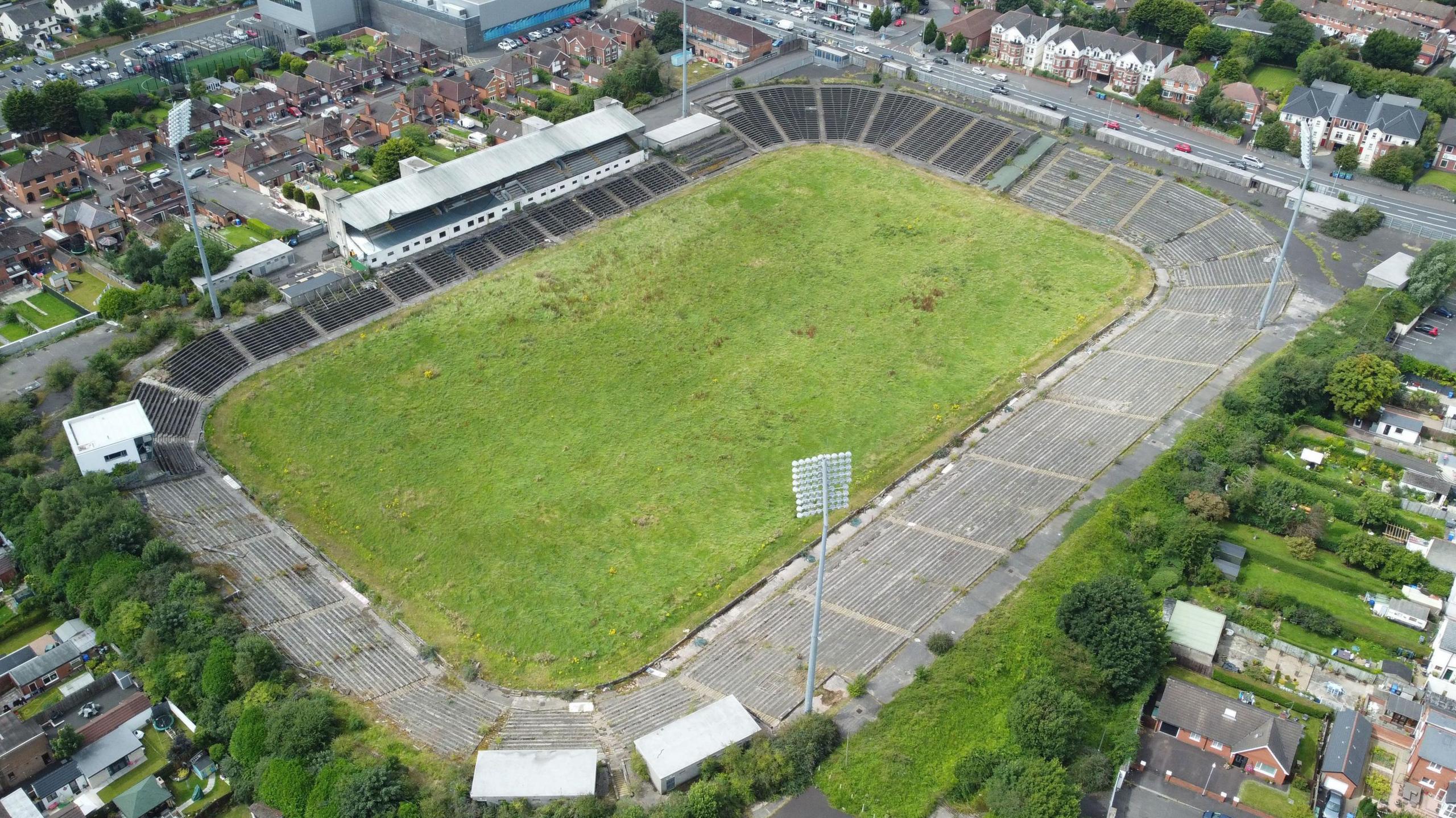
The redevelopment is being overseen by the Department for Communities.
Why not Windsor Park?
The National Stadium at Windsor Park - Northern Ireland's footballing home - only holds 18,500 spectators, making it not big enough for the Euro 2028.
Uefa requires that all European Championship stadia have a capacity exceeding 30,000.
The Irish Football Association (IFA) has said there is "no route to fund an expansion" of the ground.
- Published7 July 2024
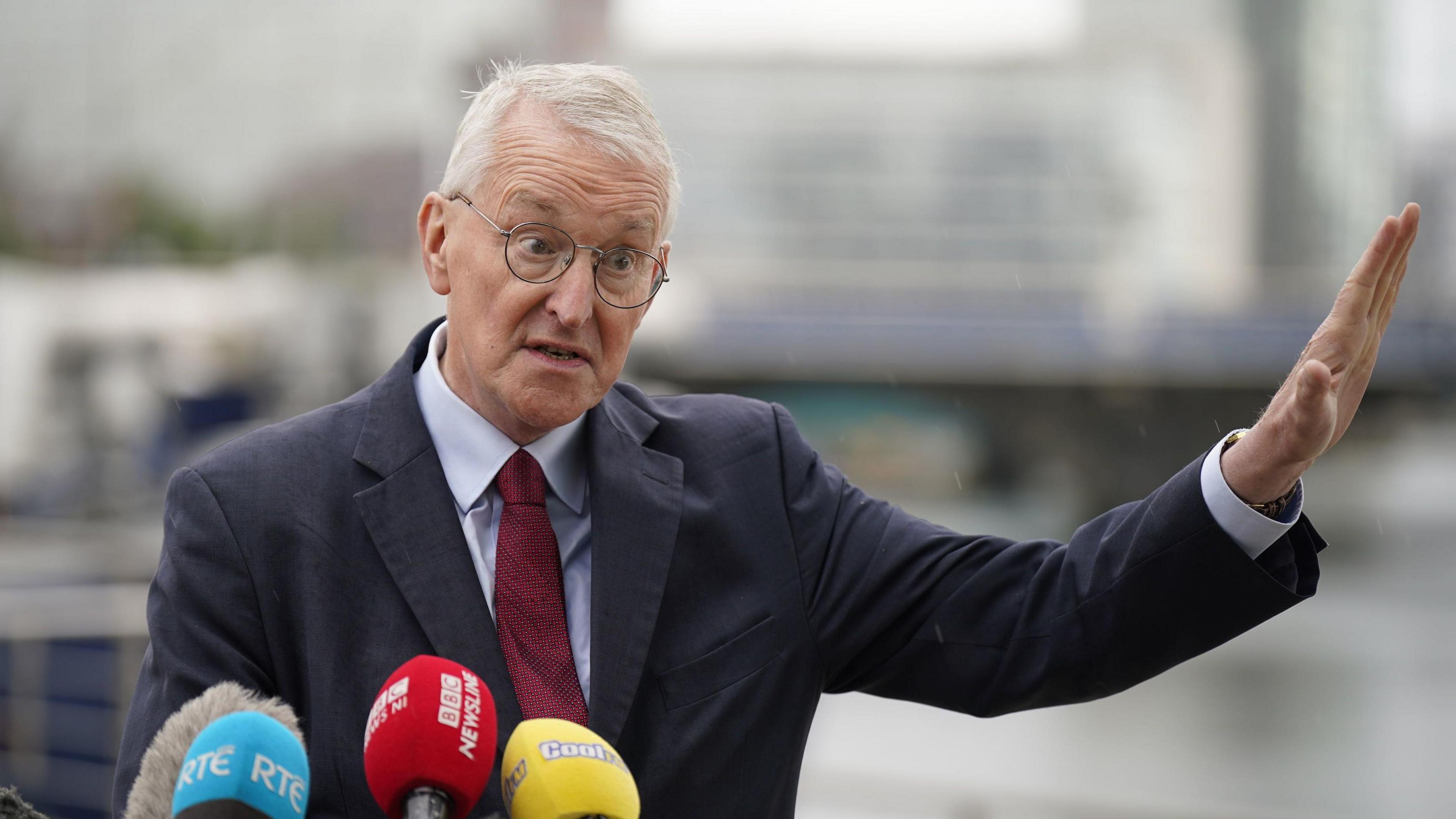
- Published26 June 2024
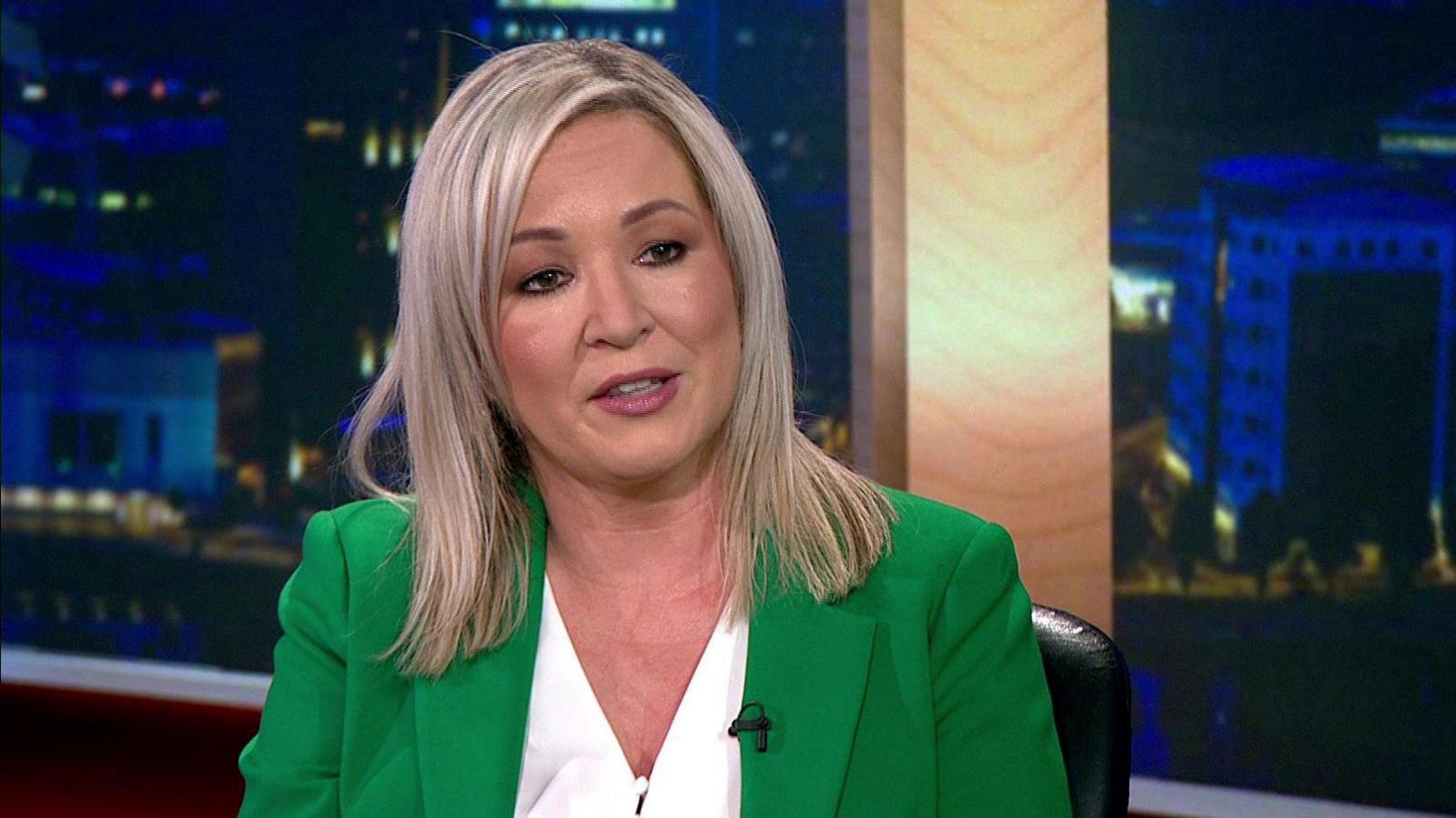
- Published13 June 2024
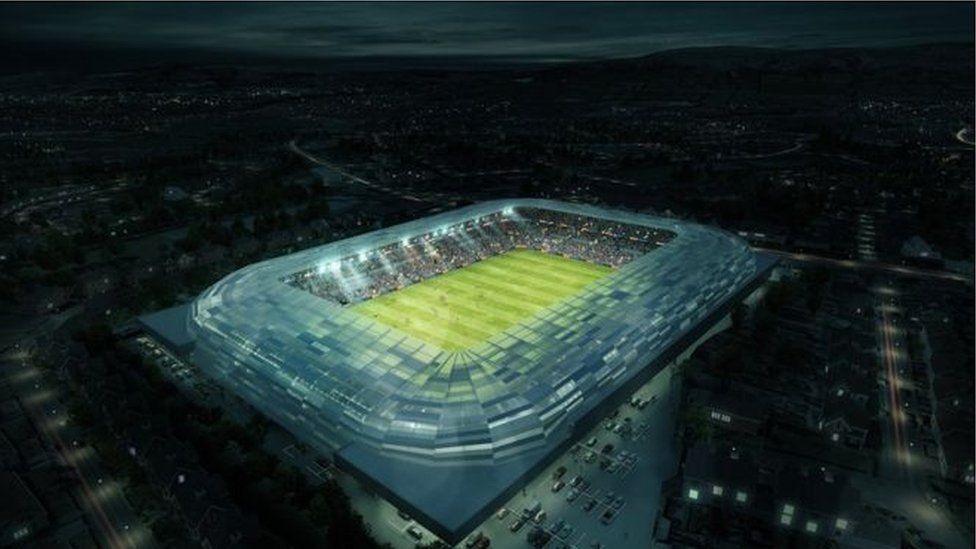
- Published18 April 2024
